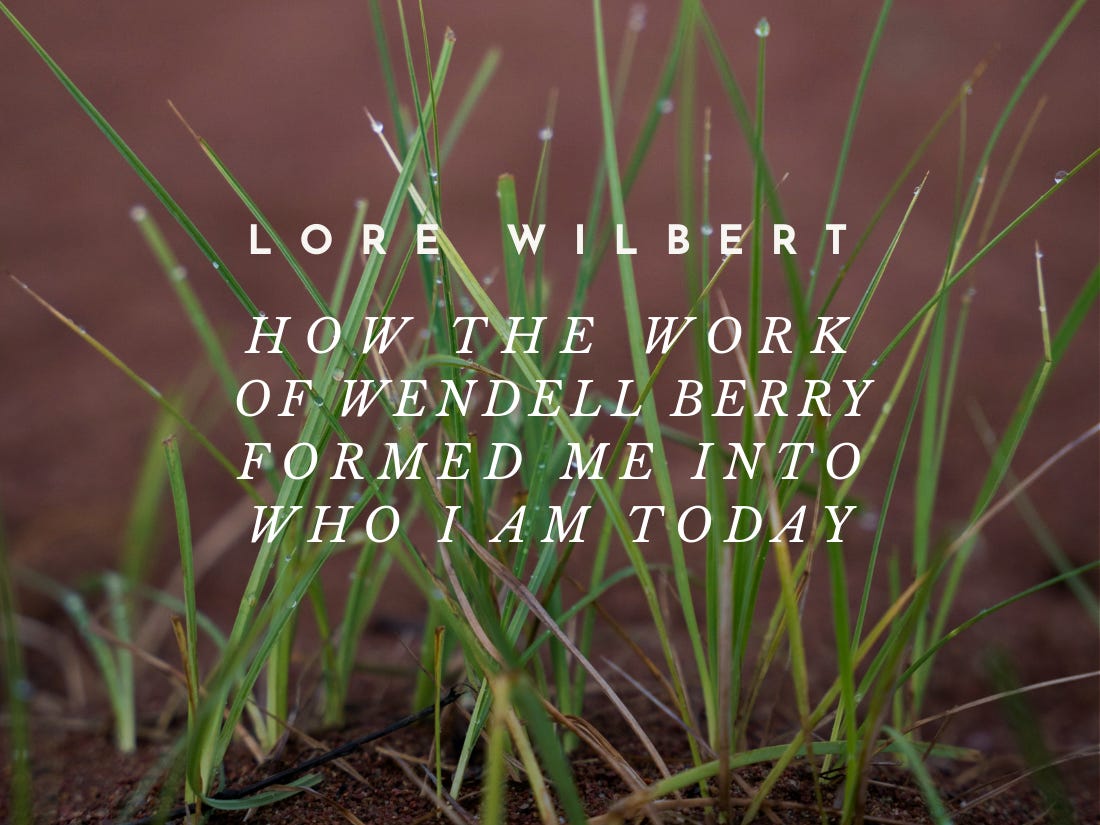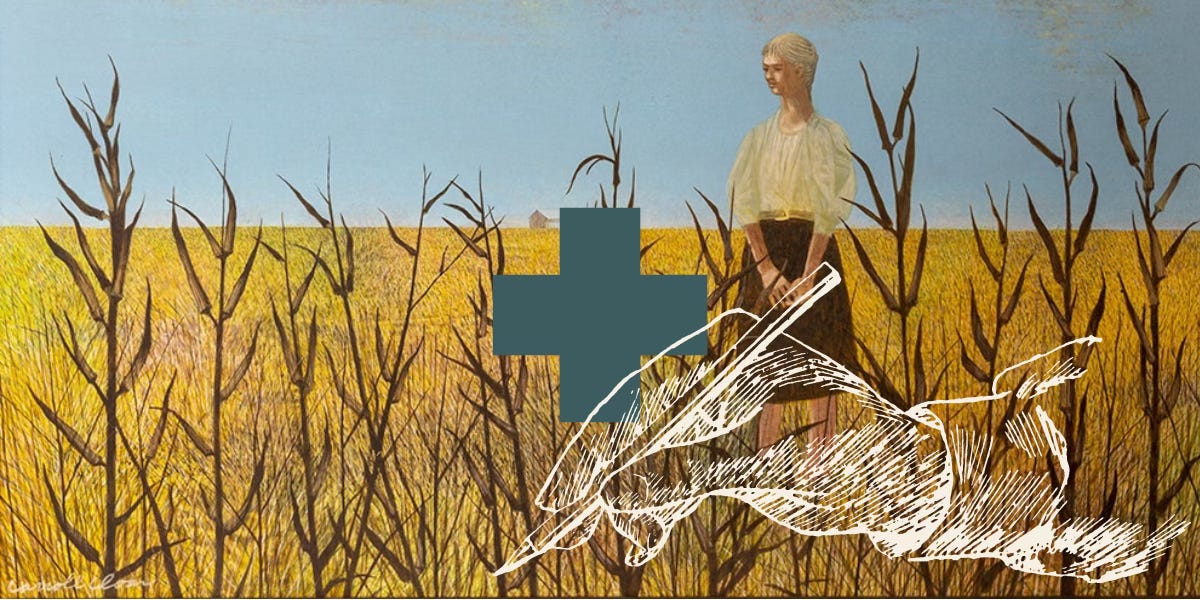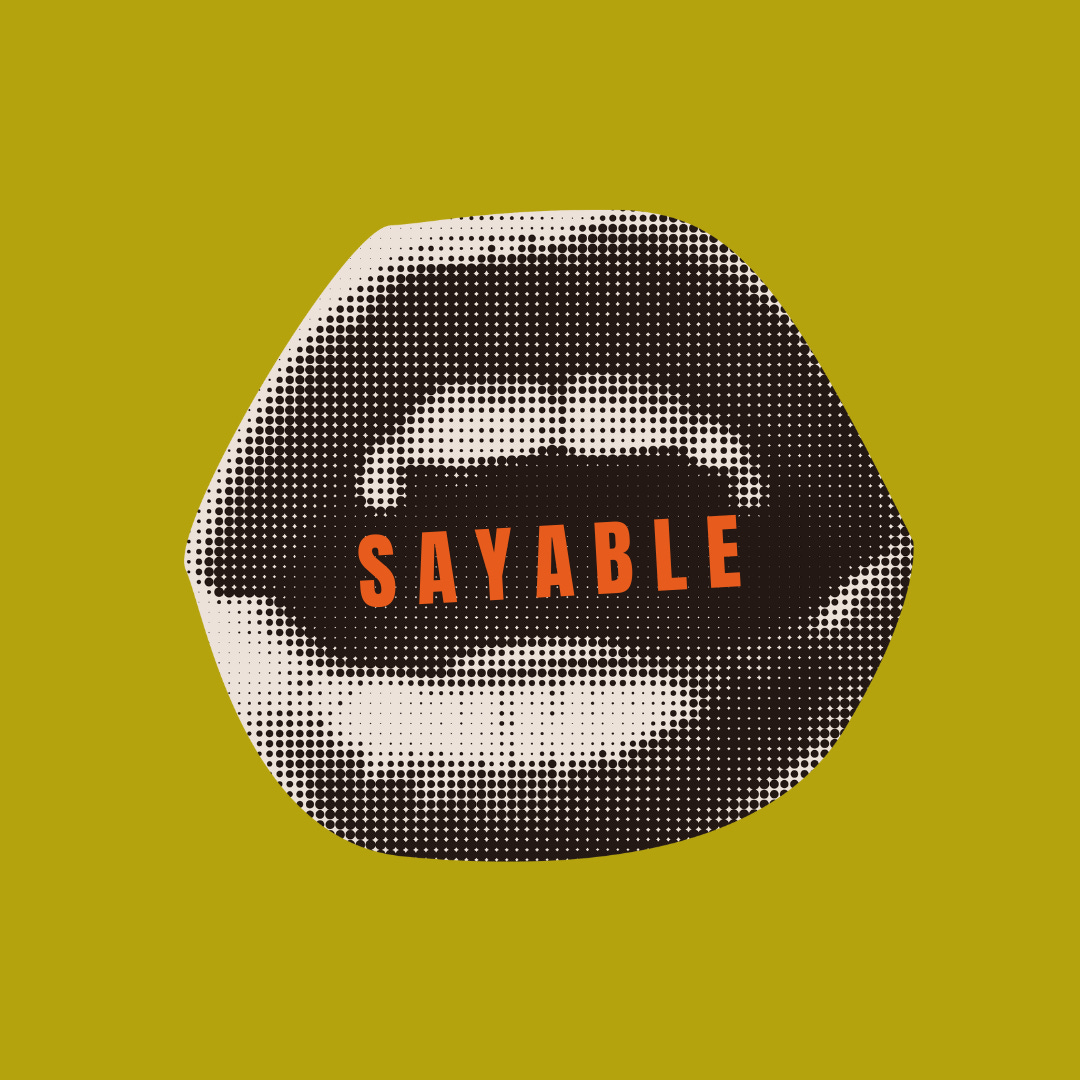How the Work of Wendell Berry Formed Me Into Who I Am Today—Lore Wilbert
Soil and Souls and How to Be a Poet
For more articles, videos, books, and resources about faith and art, visit RabbitRoom.com.
by Lore Wilbert
Note: This article was originally published March 26, 2024, on Lore Wilbert’s Substack, Sayable, at lorewilbert.com.
I was seventeen when I first heard the term grass farming, sitting at a farmer’s table with my family, on the cusp of y2k, in the full-on fever dream of my father’s desire to be off-grid before the apocalypse. We were six hours from my safe, suburban home in Bucks County, Pennsylvania, and my parent’s realtor had connected us with another homeschooling family who had recently moved from Pennsylvania to this strange part in New York State called the North Country.
The table at which we sat was a smooth butcher block one, surrounded by mismatched chairs, a warm woodstove, real wood paneled walls, and this new family we’d just met. I didn’t know it then—couldn’t know it then—but this family would become intertwined with mine in a thousand different ways and become some of the most formative people of my life. The cultivation of grass aside, these people cultivated my soul.
It was Wendell Berry the farmer at the table was talking about—the farmer of grass and soil and proponent of health as being part of a membership of the whole. I didn’t know it then, this language coming out of the rocker turned farmer’s mouth, but these words would become as familiar to me as Madeleine’s had been in the decade before. It would be years before I learned Berry wasn’t just an agricultural writer or cultural critic, but a poet and novelist too. It would be years before the language of Berry would have worked its way beneath my skin, forming and reforming and transforming me again and again into something new.
It was these people at first, the ones who transformed me. This farmer-philosopher, his artist wife, their beautiful creative children, their table, their willingness to not look away from the brokenness our family would bring into their lives in the coming years—first on the scene of my dead brother, the ones who never once gave up on my dad or my mom or any of us during all those terrible divorce and custody battle years—despite plenty of reasons to do so. I didn’t read Berry’s essay Health is Membership until my late twenties, but I experienced it from the moment I met this family.
If Berry was the one who made sense of so many of my ideas and thoughts, this family was the tangible, the skin on the ideas and thoughts, the proof that it worked.
Grass farming indeed.
It is said that a farmer is only as good as the soil she works with, but what the human eye can’t perceive in the soil is proven in the grass it grows. Good grass means good soil and good soil means the presence of air, water, microorganisms. In The Understory, I write:
In order to complete the decomposition process and become nutrient-rich, loamy soil, compost needs air, water, and other microorganisms. And likewise with us. In order to heal, we need space to breathe, permission to weep, and the presence of a friend who will help us make sense of it all: air, water, and living things. Or, as Diane Langberg says, “Trauma healing always requires talking, tears, and time.”
This is what this family offered to me again and again and again: talking, tears, and time. This is what Wendell Berry showed me was not only good and necessary for the health of the soil, but for the health of the soul. He wrote, “Given only the health of the soil, nothing that dies is dead for very long.”
So too with the soul, right?
Whenever people ask me of the writers I love and who I would recommend, it is always the ones who have a breadth of work and versatility with their words, L’Engle, Berry, Lewis, Morris, Harrison, and more. I am less interested in the ability to do one thing really well and more in the ability to morph and move between things, to stretch and grow between mediums and genres.
I am interested (on my better days) in what makes me grow, not what makes me shine. Shining is easy, but it’s often cheap, and I have to remind myself of this when I see the cheap succeeding.
Wendell Berry is not cheap, nothing about him or his writing is cheap. His writing has the chops of the best and yet the humility—the hummus—of the weak. It has the willingness to form and reform, based on new information or experiences. His writing is self-effacing, he’s not interested in being the one who gets it right or is memorialized (he is famous for his lack of desire to be famous), he’s more interested in the ideas themselves than in being the one who has them. He knows the making of soil means death a thousand times over and the making of good soil is the work of one’s lifetime.
The same with the soul too, I suppose.
Here is Berry’s poem, How to Be a Poet, which is subtitled “(to remind myself).”
i
Make a place to sit down.
Sit down. Be quiet.
You must depend upon
affection, reading, knowledge,
skill—more of each
than you have—inspiration,
work, growing older, patience,
for patience joins time
to eternity. Any readers
who like your poems,
doubt their judgment.
ii
Breathe with unconditional breath
the unconditioned air.
Shun electric wire.
Communicate slowly. Live
a three-dimensioned life;
stay away from screens.
Stay away from anything
that obscures the place it is in.
There are no unsacred places;
there are only sacred places
and desecrated places.
iii
Accept what comes from silence.
Make the best you can of it.
Of the little words that come
out of the silence, like prayers
prayed back to the one who prays,
make a poem that does not disturb
the silence from which it came.
Read that again, read it slowly. Here’s what I love about it and why I’ve committed much of it to memory:
The humility it takes to say, “I do not have enough of what it takes.”
more of each
than you have
The willingness to mistrust the flatterers (and the numbers, the counts, the metrics, etc. They’re all a fickle mistress.):
Any readers
who like your poems,
doubt their judgment.
The acknowledgement that we live in places and among people, including our own selves to our own selves, who are always trying to obscure what we actually are:
Stay away from anything
that obscures the place it is in.
The sheer acceptance of what is in order to write what isn’t yet:
Accept what comes from silence.
Make the best you can of it.
One of the challenges I feel a lot in my writing is that I am driven—compulsed even—to write in so many different genres and styles. I want to wrestle with theology and doctrine, share memoir and creative non-fiction, write with a literary bent and yet broad appeal. I want to write as the Christian I am and yet as the skeptic I also am. I want to play with form and function, and sometimes I’m afraid that causes a bit of whiplash for my readers. I’m afraid they will come here for one thing, and when that isn’t what they receive on the regular, they will leave. I’m afraid that people say, “This is what we expect of you—to be gentle, to be truthful, to be generous, to be generative, to be slow, to share beauty and blessings, and always do it in this way,” and when I do something different or am something different, I will be canceled, unfollowed, cast aside.
Berry is reminding himself how to be himself in this poem. He is saying, “Listen, self, you’re going to forget who you are because of who other people say you are or should be, so this is me reminding you (me) of what it takes to be the poet/novelist/memoirist/cultural critic you not only want to be but truly actually are.”
And, goodness gracious, if he hasn’t succeeded.
Lore Ferguson Wilbert is an award winning writer, thinker, learner, and author of the books, The Understory, A Curious Faith, and Handle With Care. She has written for Mockingbird Journal, The Christian Century, Plough Magazine, Christianity Today, and more, as well as her own site, lorewilbert.com. She has a master’s in spiritual formation and leadership and loves to think and write about the intersection of human formation and the gritty stuff of earth. You can find Lore on Instagram @lorewilbert. She lives with her husband Nate and their pups, Harper and Rilke, in southeastern Pennsylvania. She really has read most of the books on her shelves.
(Lore is pronounced with a long e.)
For more resources on art and faith, sign up for our other newsletters: Poetry, Music, and Articles.
To support the work of the Rabbit Room, join us by becoming a member. Your membership helps fund everything from publishing new books to new podcasts, events, poetry, articles, theatre productions, conferences, and more. Membership is vital to our flourishing, and we’d love for you to participate. Click here to join or learn more.
Photo by David Emrich on Unsplash









“I am interested (on my better days) in what makes me grow, not what makes me shine. Shining is easy, but it’s often cheap, and I have to remind myself of this when I see the cheap succeeding.”
Oof. I felt this. Probably need to tape it on my desk.
Thank you for this. Like you I write across genres. This is good encouragement to publish things that might risk audience disapproval or simply apathy. (Someone left a tiny Zoom prayer meeting because of something I wrote…) We are also grass farmers. But next to fields that are sprayed. The spray has been worse this year.